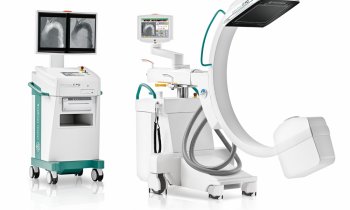Stepping towards CD disease prevention
Cardiovascular disease develops in a slow and subclinical manner over decades, only to manifest suddenly and unexpectedly. Prevention is crucial, both before and after clinical appearance,
Report: Dr Eduardo de la Sota

Evidence is ample of the effectiveness of early detection of at-risk individuals and lifestyle modifications or pharmacological approaches. However, those approaches require time, perseverance, and continuous development. Special focus must be made in e.g. diet, weight control (obesity is a disease) and physical activity, among others.
Led by Dr Valentín Fuster, The Spanish Institute for Cardiovascular Research (CNIC) was founded because – despite enormous advances in diagnosis and treatment over the last 20 years – cardiovascular diseases remain the major cause of death in the developed world. The costs generated in economic, social and human terms are also immense.
In response, the Spanish Government, through the Carlos III Institute of Health, created the CNIC to amalgamate the best Spanish cardiovascular research and provide a modern infrastructure and ample funding for biomedical research.
CNIC research is grouped into three departments:
• Vascular biology and inflammation (VBI). Here the complex interactions between the components of circulating blood and the vascular wall are investigated, with emphasis on vessel wall re-modelling, inflammation and cell-cell biology and signalling in metabolism and disease.
• Cardiovascular development and repair (CDR). Researchers are investigating cell-cell interactions and signalling pathways operating during heart morphogenesis and vascular development, the origin and maintenance of the pluripotent state, and the metabolic regulation and repair of the adult cardiovascular system.
• Atherothrombosis, imaging and epidemiology. This department develops non-invasive technologies for molecular-resolution imaging that can identify and characterise vulnerable plaques. Combined with epidemiologic analyses, this approach provides invaluable information on underlying molecular mechanisms of disease, leading to tools for accurate diagnosis and targeted drug delivery.
At the 19th World Congress on Heart Disease in Boston, MA, topics ranged from clinical pathophysiology to evaluation and stratification techniques and molecular and cellular biology, including neurohumoral, immunological and genetic studies. The most relevant studies presented approached cardiovascular disease prevention and prognostic algorithms. These included two interesting Spanish studies.
In the first, according to Dr R C Hermida from the University of Vigo, sleep blood pressure (SBP) is an independent predictor of cardiovascular events. That study involved 11,255 subjects, 6,028 men/5,227 women. Dr Hermida concludes that mean SBP, but not daytime clinically measured BP, is a significant and independent prognostic marker of cardiovascular disease morbidity and mortality. These findings indicate ABPM (Asleep Blood Pressure Measurement) is a clinical necessity to accurately detect abnormal sleep-time BP and assess cardiovascular disease risk.
In the second study, Dr M J Sanz from the University of Valencia), presented a study to address effective strategies to treat and prevent atherosclerosis, using combined concentrations of Rosuvastatin (Rosu) and bexarotene (Bex) on angiotensin II (Ang-II)-induced arterial mononuclear cell (MC) recruitment. Research data suggest that combined administration of Rosu+Bex at suboptimal doses may constitute an alternative therapy to control vascular inflammation, minimising the appearance of drug-associated adverse effects.
Thus, CD prevention is advancing slowly, but showing clear evidence that physical and mental hygiene, medical controls, education and healthcare information will minimise mortality and morbidity of cardiovascular diseases, which cause much suffering, mortality and healthcare expenditure.
08.12.2014










